#anthropology of video games
Text

...In which professor Bonnie Nardi from UC Irvine's Department of Informatics discovers WoW and LOVES it! Open access, too!
#multiplayer#world of warcraft#wow#mmorpg#azeroth#role playing games#RPG#massively multiplayer online role-playing game#research#academic research#anthropology#games#video games#open access books#open access#jstor
254 notes
·
View notes
Text
schneeball cookie and maple taffy cookie are awful archaeologists
15 notes
·
View notes
Text
I like the historian on the Hakkon DLC






KENRIC: "When spirits are willing to talk, most historians love the chance of a firsthand report."
INQUI: "You're not concerned about the literal existence of an Avvar god?"
KENRIC: "Not particularly. If the Jaws of Hakkon once bound their god to a dragon, it's likely just a powerful spirit. (cont.) That isn't to downplay the important cultural significance to the Avvar. But magic does not equate godhood. (cont.) Every Blight comes from the "Old Gods," which are also dagons corrupted by outside influence. (cont.) Sometimes, I wonder if we really know what we mean by gods."
I like this conversation. On one hand it does still have a bit of underlying implication that "The Maker is the Real God & these other gods are not real gods, just spirits, mortals" etc ignorance, but it does bring forward the cultural significance of what "god" even means regarding varied definitions per culture.
The Dwarves don't have "gods" per se, they have the Stone, the stone-sense, and the Paragons as a version of Ancestor veneration or Hero Worship (some, to my knowledge, can be Paragons while alive, but I'd have to replay dwarf origins to remember).
The Elves with their destroyed history elevated their circle of immortal beings to godhood mythologically, and while their understanding of their own pantheon has changed over the eras through colonization, they're still a legitimate "type" of god as their pantheon are ascended beings that even predate humans to the point one of the evolved (though incorrect as we find out) mythologies is that the creation/evolution of humans is what made elves lose their magic and isolate themselves.
The Avvar worship spirits and know they're "spirits" (besides the other primordial gods of the pantheon) but do not let that deter them from venerating these animistic beings and gain their blessing the way "real" gods would, which, if a "spirit" does everything a "real" god does, then that.. makes them a "real" god. Because the definition of a "god" is so vast and nebulous an soupy per cultural ideology.
Humans worshiping "The Maker" enjoy the idea of the untouchable, non-literal entity much the same way the Avvar look at their personification of the Sky and Mountain and Winter.
I like this conversation also because, well, the Maker is supposed to live in the Fade. "The Maker" itself could be "just a powerful spirit" , also not to downplay the significance but it's not a bad thing to be tangible or intangible. It's a real world conversation, also, gods that are tangible (animism, personification, etc) vs intangible are no better nor lesser than each other culturally (despite, you know, ignorance, elitism, colonization, etc).
Not only that but, if the Maker and the Tevinter Imperium and the Elves and Spirits all existed so long ago, Elves even before humans, and the idea that Solas/Dreadwolf is the individual who created the Veil and split the material and ethereal worlds apart to trap the "gods" that could very well include "The Maker"
I know I've been ornery about the way Dragon Age seemingly treats non-chantry (non-christian) religions, but I can 100% forgive characterized ignorance if it does turn out "oh, the Maker is also one of the spirits-turned-god and the idea of what is a god varies culture to culture whether its a powerful, elevated mortal, a powerful (conditional?) immortal, an ethereal entity like a spirit, a spirit taking mortal form, and many others, as they are al part of this ecosystem and thus can each be venerated accurately and appropriately with no real right or wrong answer" or some other interesting twist. DA gods dont have to be "just" spirits or "just" mortals turned immortal etc, they can all be "gods" without downplaying their influence and power and apotheosis.
Sidenote, I wonder if the Avvar would think of someone/thing like Cole to be blessed or apothesized.
I get so excited when it comes to mythology, real world and fictional. They're so much fun, and the conversation, again real world or fictional, can also be fun.
#dragon age#dragon age inquisition#reminds me of the conversations we used to have both on witchblr and in pagan communities#as well as in my religious studies and anthropology classes#my belief is XYZ and its true for Me but I can accept and respect your ABC belief as true for You at the same time#silly video game dlc reawakening my passion for history and culture and providing a good oil to my rusty spiritual and religious work
61 notes
·
View notes
Text
genuinely did not expect Warframe to get me thinking about the cultural background of its worldbuilding. Very clever of it to answer the question of "why are the players in this MMO just So Separate from the rest of the characters in this world?" by making them Actually a distinct culture in setting. Like, you find Tenno really into fishing, or skateboarding, or whatever, but Tenno still go out killing shit and doing their jobs, i.e. as ninja badasses. It's great.
6 notes
·
View notes
Text
Gender is weird, messy and complicated, and it can be hard to squeeze that complexity into the rigid language of science - can Saltsea Chronicles or Baldur's Gate 3 offer a glimpse of a better way? My newest video explores that very question (and a lot of theory)

youtube
#baldurs gate 3#Saltsea Chronicles#gender#sociology#anthropology#video essay#video essayists#video game criticism#video games#indie games#trans#nonbinary#nb#Youtube
3 notes
·
View notes
Text
trying to find some good fucking food like

#i have to peruse the fan fiction landscape of any video game i play#it’s anthropological#but i do live in hopes of finding well written stuff in any random#*fandom#a post of mine
16 notes
·
View notes
Text

youtube
#game of thrones#a song of ice and fire#song of ice and fire#george rr martin#speculative evolution#speculative biology#speculative zoology#spec evo#specevo#spec bio#specbio#spec zoo#worldbuilding#worldbuilding stuff#anthropology#video essay#tumblr recommendations#recommend#recommendation#youtube recommendations#video recommendation#youtube#youtube content#youtube video#youtube link#video link
2 notes
·
View notes
Text
my homepage is dry af so i need more people to follow. reblog/like if you post any of the following:
• food recipes/pictures
• witchy things
• academia (specifically physics or paleontology)
• archaeology/anthropology
• memes/cursed/unhinged text posts
• video games (acnh, valorant, ow2, etc.)
#food#anthropology#witch#paleontology#archaeology#memes#cursed memes#unhinged#academia#physics#valorant#acnh#ow2#video games
10 notes
·
View notes
Text
Survey for those who have played AC: Valhalla!
Got this email today from an anthropology alum group and thought some of you may be interested in helping out:
Hello,
My name is Jackson King, and I am an anthropology major researching for my final project. I am analyzing the way that historical misrepresentation in video games can affect the way players understand history through a case study of Assassin's Creed: Valhalla. My goal with this research is to see if incorrectly represented history in video games can cause players to have a false idea of history. The survey should take about 10-15 minutes to complete.
Criteria: You must be 18 years or older and have played the game Assassin's Creed: Valhalla for any amount of time.
Survey Link: https://oshkosh.co1.qualtrics.com/jfe/form/SV_1RI0BXyszgXEfoa
If you have any questions, please email [email protected] directly, or UWO's IRB at [email protected]
Thank you!
Jackson King
#ac#ac valhalla#assassin’s creed#assassin’s creed valhalla#survey#anthropology#video games#not far cry
2 notes
·
View notes
Text
"Caillois's definition of play is particularly useful if we apply it to videogames. He argues, first, that play is a 'free' choice; otherwise it loses its nonwork qualities. Second, it is 'separate' from other parts of life, limited in terms of space and time, defined before the activity starts. Third, the outcome is 'uncertain,' meaning the player must take initiative as the results are not fixed beforehand. Fourth, it is 'unproductive,' not creating anything in the process. Fifth, it is 'governed by rules' that create new conventions and ways of doing things while also suspending the regulation of everyday life. Sixth, it is 'make-believe,' meaning it is different to, and set against, real life. When play is defined by these six aspects, it is often structured by games.
We can clearly see each of these qualities with videogames. We make a 'free' choice to play them, usually within the 'separate' environment of the computer or console; we do not know how the play will go in advance, as videogames are 'uncertain' (even if we really good at are the game); the activity is 'unproductive' in the capitalist sense; the videogame contains complex 'rules,' even if many are hidden from the player; and they are 'make-believe' in varying ways. If play encompasses spontaneous and hard-to-capture aspects (what Caillois identifies with the Greek word paidia), then games introduce structured activities with explicit rules (ludus), as well as the elements of competition (agôn), chance (alea), simulation (mimesis), and vertigo (ilinx, referring not to the nausea-inducing physical experience but to the simulation of high speeds or of a reckless rampage). Becoming broadly familiar with each of these qualities will help us make sense of different types of games later.
Caillois was also a surrealist who saw great political potential in avant-garde art. As such, his arguments for politics and games started from the idea that 'for the player to voluntarily be liberated by play/game as a means for a free society, the game has to project a belief system that is beyond a known reality.' In the process, he reproduces part of the magic circle as 'the game has to remain separate from reality.' We can take up these insights from Caillois by reading him through Marx, in which case the concept of play would also begin from a separation, not from reality, but 'from everyday work, separate from the production tools owned not by the worker but by the employer, the capitalist.' The process of play can therefore be a 'means for the worker to cease being a worker, for a limited time, and to become, in a surrealist sense, something else than a slave in the bounds of the capitalist.' This resonates much more with videogame play. Coming home after work to play videogames provides that escape for millions of workers every day. For a moment, each is no longer a worker, but free to explore new worlds outside the drudgery of capitalism.
Videogames provide a space of experimentation, of discovery, but also recovery from capitalist work. In a way, Marshall McLuhan makes a similar claim, arguing that 'art and games enable us to stand aside from the material pressure of routine and convention, observing and questioning. Games as popular art forms offer to all an immediate means of participation in the full life of a society, such as no single role of job can offer to any man.' It is clear that games have historically played important social roles. As McLuhan notes, 'The games of a people reveal a great deal about them.'"
- Jamie Woodcock, from Marx at the Arcade: Consoles, Controllers, and Class Struggle, 2019.
#jamie woodcock#quote#quotations#play#video games#labor#marxism#democratic socialism#class struggle#leisure#anthropology#surrealism#roger caillois#marshall mcluhan#imagination#work#jobs#capitalism
3 notes
·
View notes
Text
i wish i actually played video games instead of just watching 484974833 hours of youtube video essays about them
#im watching the new folding ideas vid and when coming of age in second life came up i gasped#war flashbacks to the social anthropology of visual media and culture paper i took in 2nd year undergrad#the one core text i actually did try to read before basically giving up on the whole paper lmao#and it was interesting! i was just uh lost in the wilderness (forgetting to take my adhd meds & having a long mental breakdown)#anyway. shoutout to my supervision partner who very kindly carried us both through that year.#shockingly i did not do well in that exam!#also this video has made me think about wtf i was doing on that text based samurai mmorpg for the better part of a decade#(not levelling at all and just fucking around in the forum and chatroom)#players could 'buy' each other via bidding and at one point i was the most expensive player in the game#THAT was my instrumental play baby!#pretending to be an adult and making random guys want to marry me in-game :)#tmi
1 note
·
View note
Photo
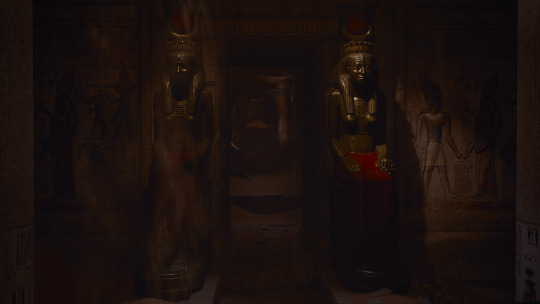
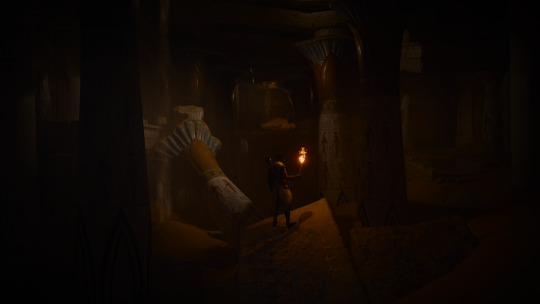

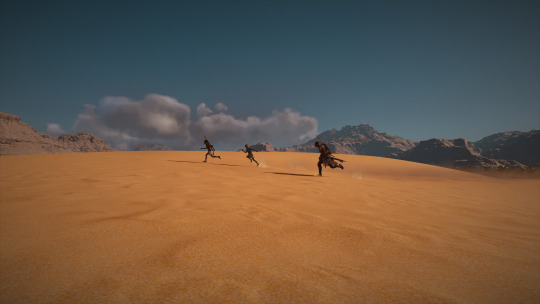
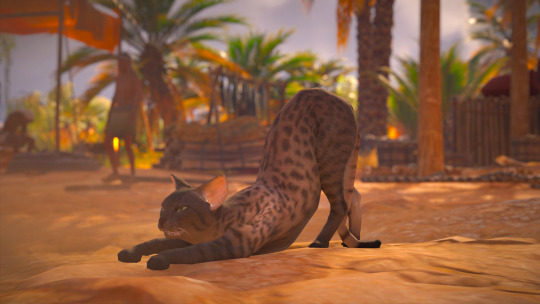

Been loving Assassin’s Creed Origins so far :o)
#its free on game pass and i was super excited once it released :) ive always wanted to play origins bc its set in ancient egypt#and i was super excited once i found out there's a photo mode#ouoogguh the anthropology in me;;;#i am basking in ancient egypt history. absolutely fixating;;;#you absolutely love to see it#ancient egypt <3 <3 <3 <3#Bayek 🥺🥰🥰🥰🥺🥺🥺🥰🥰🥰🥵🥺🥺🥺🥺🥰#never seen a man so beautiful;#Assassins Creed Origins#Assassins Creed#ac origins#assassins creed photography#virtual photography#video games#Ancient Egypt
6 notes
·
View notes
Text
Huh. So. Midsommar, huh? 🌼🌼🌼
#horror movies#i really enjoyed that#it was so funny watching norsemen just before#i applaud them for setting all of the american scenes indoors and also having chekhov's painting of a bear#and also philosophy i mean anthropology grad student chidi anagonye#i feel like their population is really not very sustainable like when you have a grand total of 2 ättrstup candidates something went WRONG#does anyone know why all the cars were blue?#new fave horror movie. the horror really WAS the bureaucracy we made along the way 🤓#and it's gorgeous of course#i it's the wrong takeaway but#i love colony builders and i figure i could do a much better job of running that cult in a video game. like#they're so bad at resource management. like they're one bad season away from having to trudge down the road and rob an aldi's. which is#frankly a disgrace
1 note
·
View note
Note
Cool
if you are saying that i am cool, i have so much news for you
i'm a huge dweeb. the dweebiest, even. but i appreciate it. thank you.
#eli talks#eli answers#i read fantasy novels and have star wars on my prosthetic#i get into happy excited rants about animals and armor and anthropology and fantasy worlds and video games#i stop everything im doing to look at birds and snails#im. a dork. but that's a good thing i think.#not a cool thing. but a good thing.
1 note
·
View note
Text
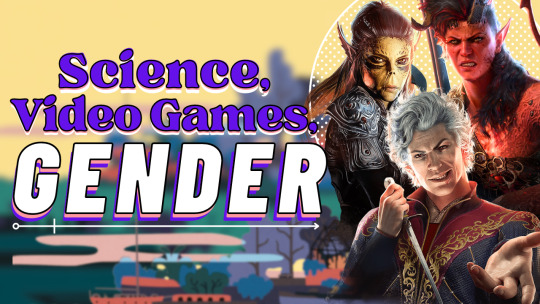
New video this Friday, 5pm Irish time!
This time I’ll be talking about how the language of science falls short when it comes to describing the experience of gender, and video games that show us a better way (and some that don’t)
Coming in the wake of JK Rowling describing womanhood as exclusively the domain of people who “produce large gametes” I feel like it’s a pretty timely vid, and kinda sets out why biology and chemistry can’t capture the vibrant truth of being a gendered person!
Edit: ITS UPP!!!!
#Saltsea chronicles#baldurs gate 3#video essay#video essayists#anthropology#gender#science#bg3#video games#video game criticism#nonbinary#trans#jk rowling#philosophy
5 notes
·
View notes
Text
This week on Platypus, I wrote a short piece on how the #food in #videogames provides players with a means to learn about and experiment with them! I bring in insights about these fantasy #digitalfoods through brief autoethnographic reflections and conversations with fellow #gamers on #Twitter to highlight how videogames allow us to "play" with the blurring boundaries of realities of food both online and offline.
#food#digital food#video games#media studies#digital anthropology#gamer#animal crossing#legend of zelda#the elder scrolls#pokemon#cooking mama#maplestory#science and technology#STS
0 notes